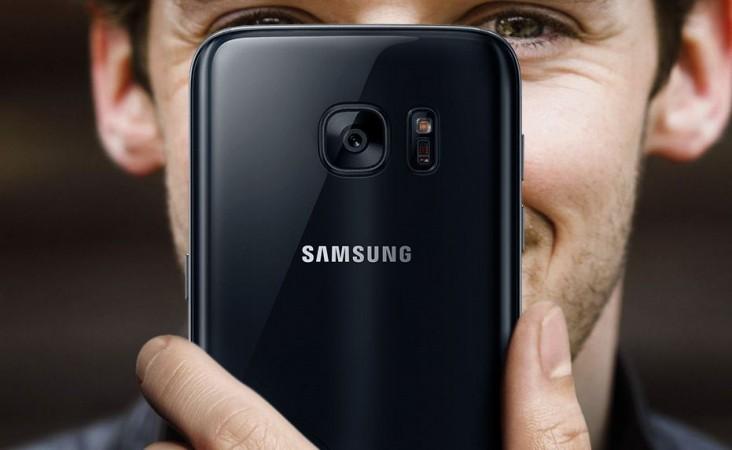
Samsung is all set to jump on to the artificial intelligence bandwagon. On Monday, the company officially announced the existence of its new AI-based virtual assistant, called Bixby, which is claimed to provide you "a new way to interact with your phone".
Samsung doesn't want you to consider Bixby as just another digital assistant into the mix, currently subjugated by tech giants like Google, Apple, Amazon and Microsoft.
What the South Korean conglomerate tries to offer consumers is an aide to help them better perform the litany of tasks with their smartphones, and not a knowledgeable answer-machine which is good at solving fact-based questions.
Bixby will first appear on the Samsung Galaxy S8, which will be launched later this month. While there has been a lot of speculation about the upcoming flagship phone as well as the tasks that Bixby will be capable of carrying out, Samsung hasn't provide specifics on how exactly the new virtual assistant will work on the handset.
However, the company said in a blog post announcing the service that it "has employed artificial intelligence, reinforcing deep learning concepts to the core" of its user interface designs, and "Bixby is the ongoing result of this effort".
According to Samsung, Bixby is an intelligent interface, which makes it "fundamentally different from other voice agents or assistants in the market".
Here are five key underlying principles that set Bixby apart from the rest.
Bixby is contextually aware. You will be able to summon it at any time while using a Bixby-enabled application and it will recognise the state that the app is in, and will automatically take the right action based on the current context.
We don't know how accurate Bixby will be in giving you contextual suggestions, something that has already been demonstrated by Google Assistant. But Samsung said that unlike most existing virtual assistants, "Bixby will allow users to weave various modes of interactions including touch or voice at any context of the application, whichever they feel is most comfortable and intuitive."
Bixby is philosophically different to other AIs. You have the likes of Google Assistant, Siri and Cortana to fire questions at and get specific answers. Therefore, with Bixby, Samsung provides you with a helper on your phone, something which can open up the Gallery app to show you pictures and videos, and send them to your contacts without switching apps or making you type the receiver's contact info.
According to Injong Rhee, Samsung's head of research and development for software and services, the company has a new approach to employ artificial intelligence, in which "it is the machine that needs to learn and adapt to us", instead of "humans learning how the machine interacts with the world".
Bixby will get your incomplete commands. You don't need to worry about the exact form of the voice commands while using Bixby. Unlike most other digital assistants that require you to command them in a set of fixed forms, Bixby will be smart enough to interpret incomplete information and execute the command as best as it can, and then prompt users to provide more information.
The ability to understand natural language is one of the buzzwords of modern AI. Amazon's Alexa is touted as a voice-activated natural language processing system, which can recognise and respond to voice requests instantly.
Bixby may not be able to match Alexa's effectiveness at first, but Samsung said it would take you as far as it could in the task, before you have to mediate.
Bixby knows the apps very well. When you command Siri or Cortana to set a reminder for you, they do it perfectly. But when you want them to delete a reminder, they are helpless. Apparently, you won't have to face this issue with Bixby, because once it's fully integrated within an app, it can support almost every task that the app is capable of performing.
Samsung wants to make sure that everything users can do with the touch interface can also be done with a voice command using a Bixby-enabled app.
Bixby has its own button. The upcoming Galaxy S8 and all other high-end Samsung handsets that would feature Bixby will have a button located on the side to launch the voice assistant. Having a dedicated launch button will also help Bixby differentiate itself from other services like Siri and Google Assistant which depend on the heavily overloaded home button to be launched.
There are other implications for the Bixby button, too. According to Samsung, rather than unlocking your phone and opening the phone app to make a call, you can just use the Bixby button and a simple command for the whole action.
Samsung said that Bixby's capabilities would be limited to a subset of preinstalled apps initially, but the number of compatible apps will continue to increase over time. The company is also planning to provide an SDK for third-party developers to make their services Bixby-enabled.
There will be a time in future when Bixby will grow into an ecosystem where you will be able to control your air conditioner or television set through it. But it's definitely going to take a long time before Bixby accomplishes all these lofty ambitions, and Samsung knows this well.
"We do have a bold vision of revolutionizing the human-to-machine interface, but that vision won't be realized overnight. Ambition takes time," Rhee said.

















